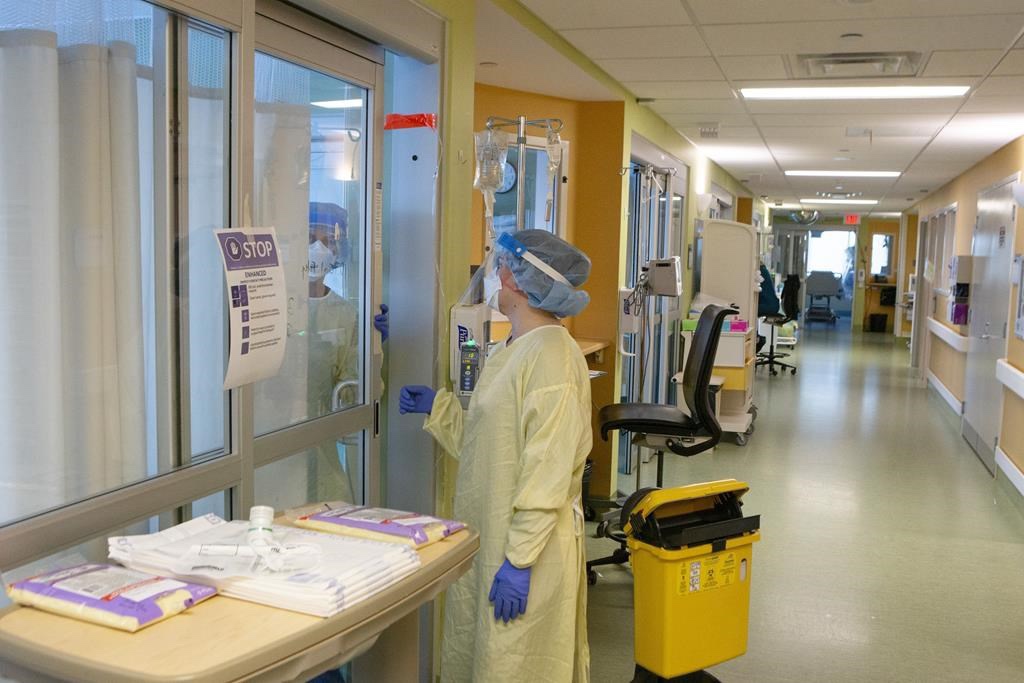
Several Ontario hospitals are bringing back mask mandates for staff with COVID-19 cases on the rise once again – a clear sign the province has entered a new wave, an expert explains.
St. Joseph’s Healthcare and Hamilton Health Sciences (HHS) updated their masking guidelines on Wednesday, requiring staff to wear masks when interacting with patients.
“While we anticipate requiring clinical masking through the peak of the respiratory season, we intend for this to be a temporary measure,” an internal memo sent to HHS hospital staff said on Monday.
Masks became required in clinical-areas at Guelph General Hospital on Sept. 11 while remaining optional in hallways and meeting rooms. Earlier this month, some eastern Ontario hospitals in Kingston and Ottawa also made moves towards masks.
At a number of Toronto-area hospitals, including at Mount Sinai, North York General, Women’s College, Lakeridge, St. Josheph’s and St. Michael’s Unity Health, masks continue to be required in patient-care areas but are optional elsewhere.
“We believe this approach, which has remained in place since the spring, is appropriate given the current and expected viral transmission rates this fall,” Sinai corporate communications manager Anne-Marie Flanagan said.
‘PROTECTING ALL OF US’
Dr. Fahad Razak, an internist at St. Michael’s Hospital in Toronto, said institutions individually changing their guidelines is a clear recognition the province is in another COVID-19 wave.
“It started at the end of the summer. It’s extending now into the fall. The hospital environment is a unique environment in the sense that it has a high concentration of very vulnerable people,” Razak said.
As seen in the past, hospital staffing gets “extremely tight” in fall and winter, which is yet another consideration for requiring masking as the respiratory season takes hold, he added.
Provincial wastewater testing has shown that COVID activity has been rising since early August and is now at levels not seen since last March.
Positivity rates have also been rising recently and sat at around 14.1 per cent in the first week of September. That is up sharply from the 4.8 per cent low near the end of June.
“I would really caution people to not think about this as just COVID or influenza or RSV, but to think about our health-care system as a system that treats all of us for any major medical condition: a car accident, cancer, heart attacks,” Razak said.
“When these systems slow, when human resources are strained, when wait times go up, all elements of care are affected. Think about these as resources that we’re protecting for all of us.”
With files from Josh Freeman and Alex Arsenych



